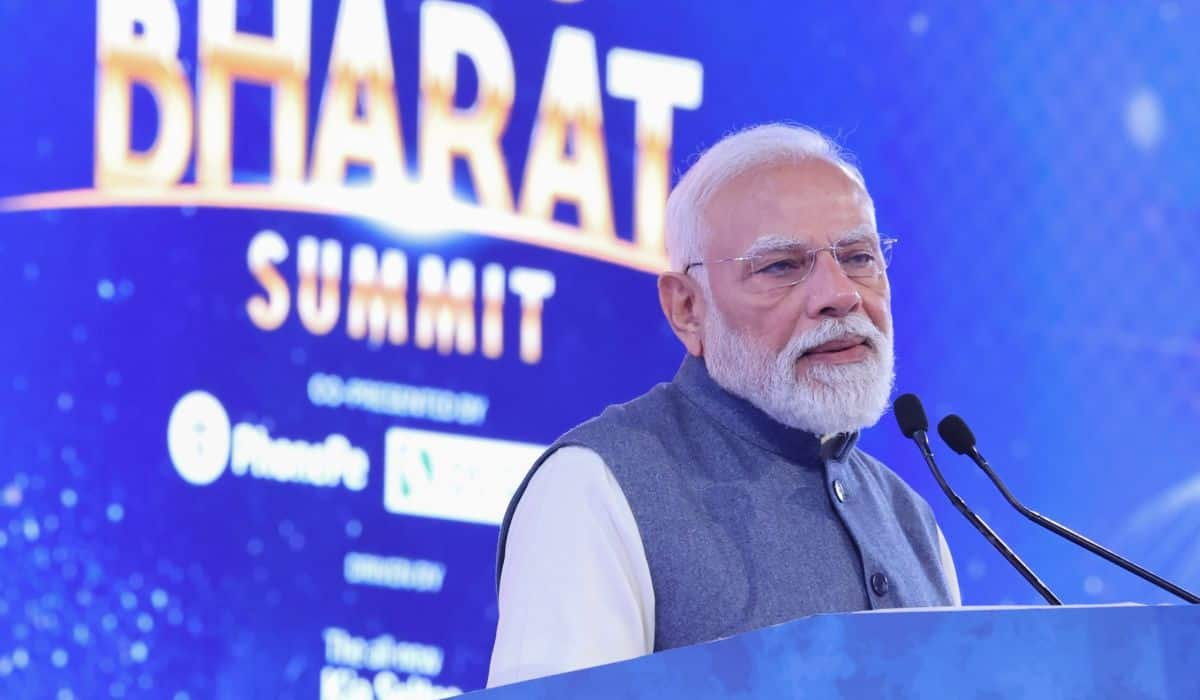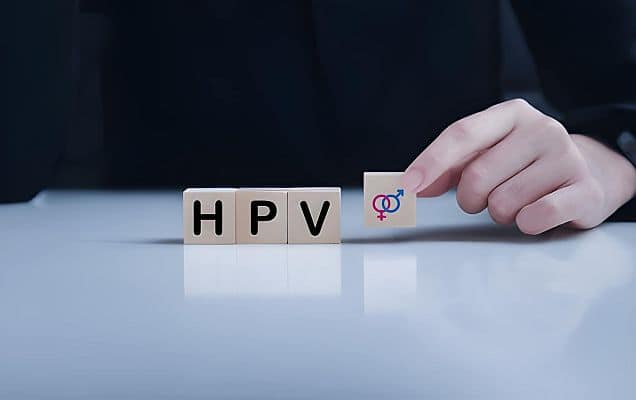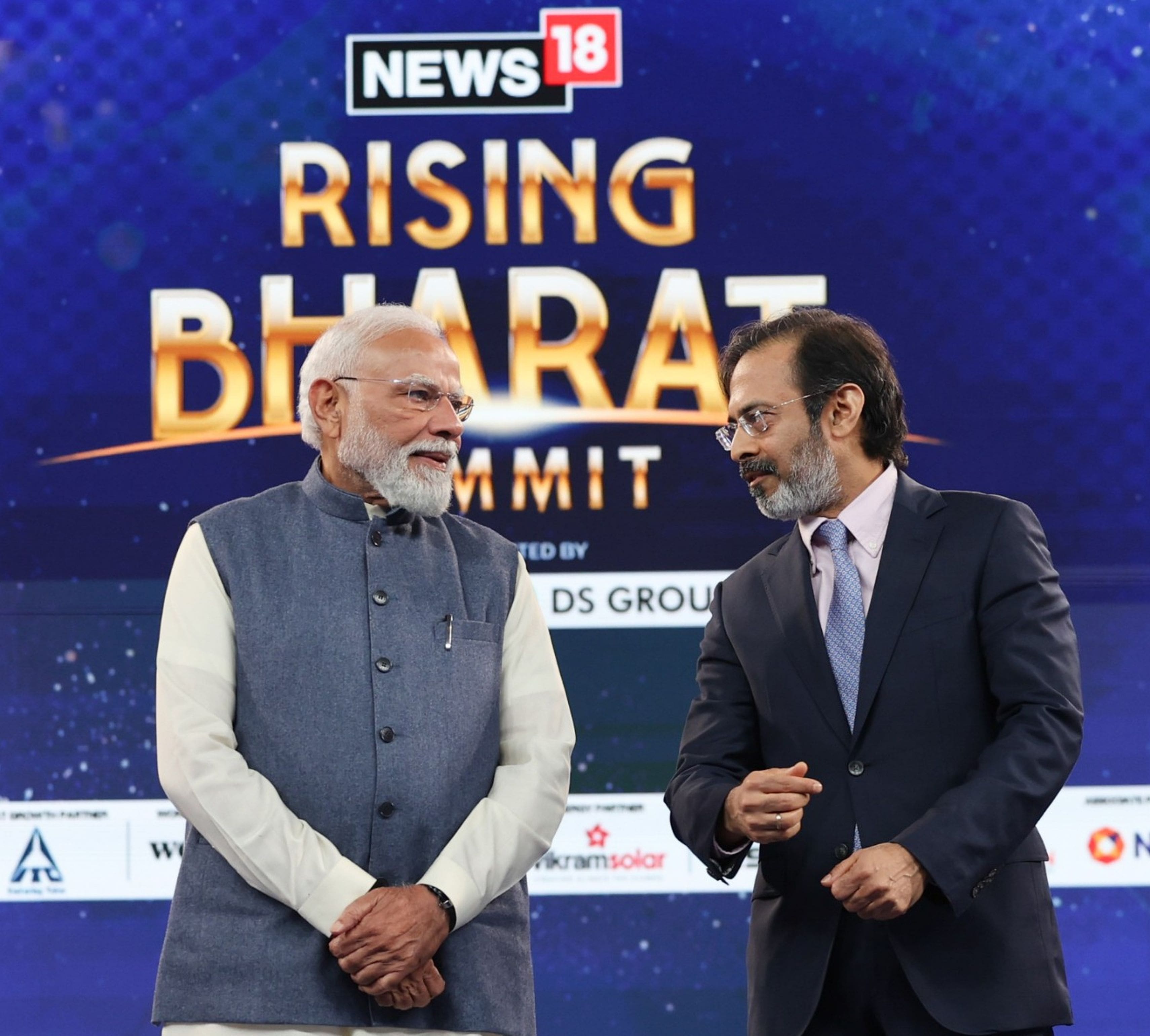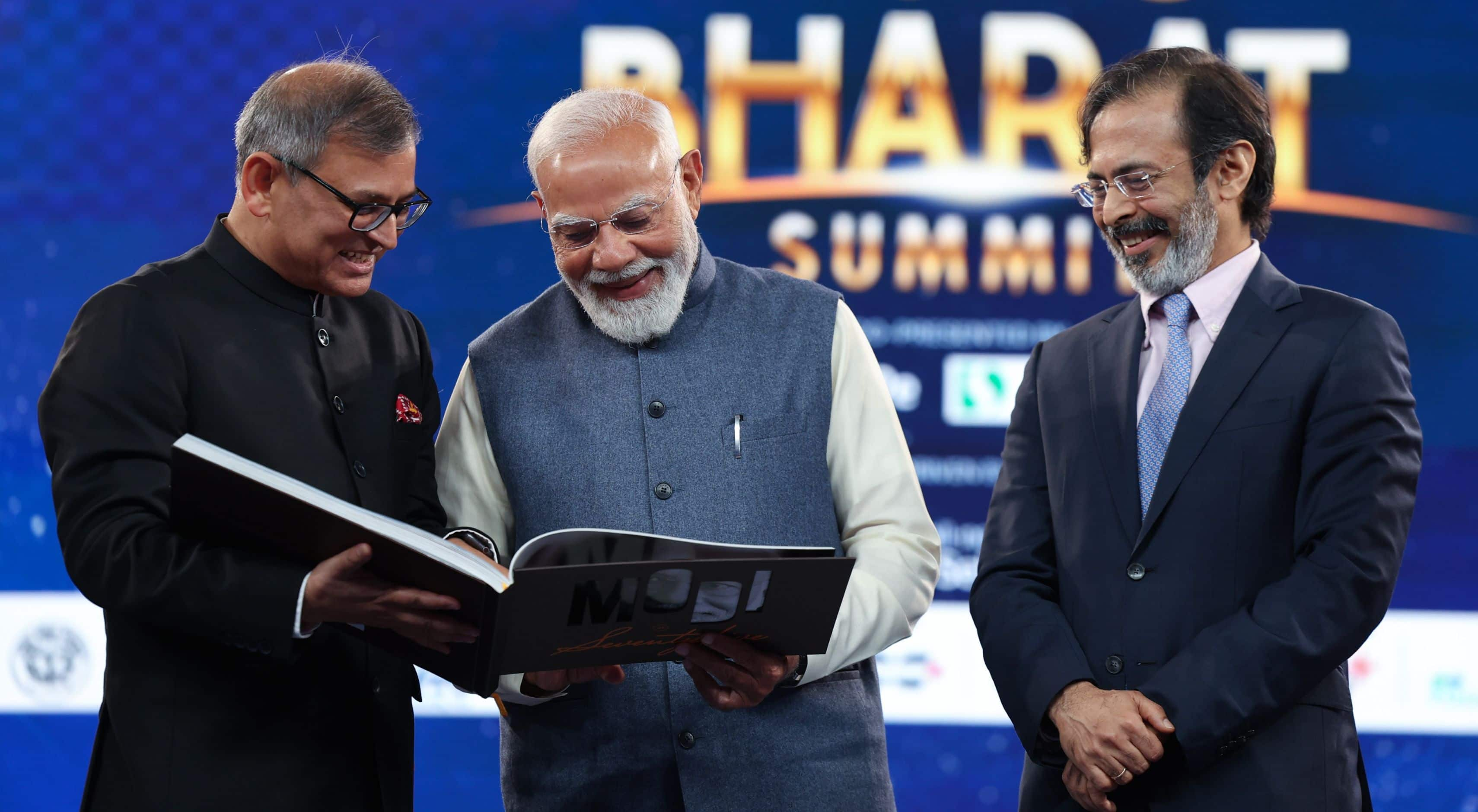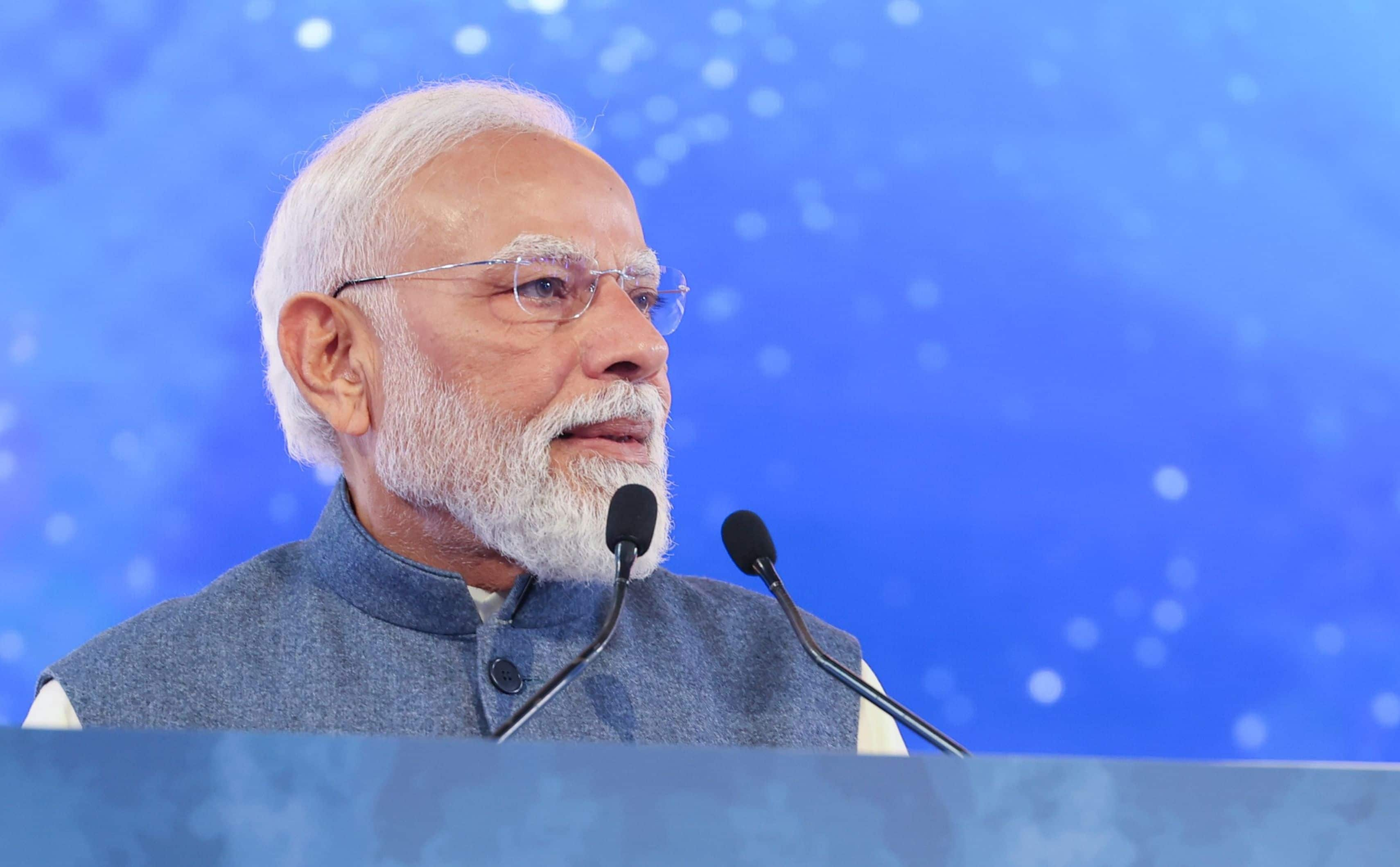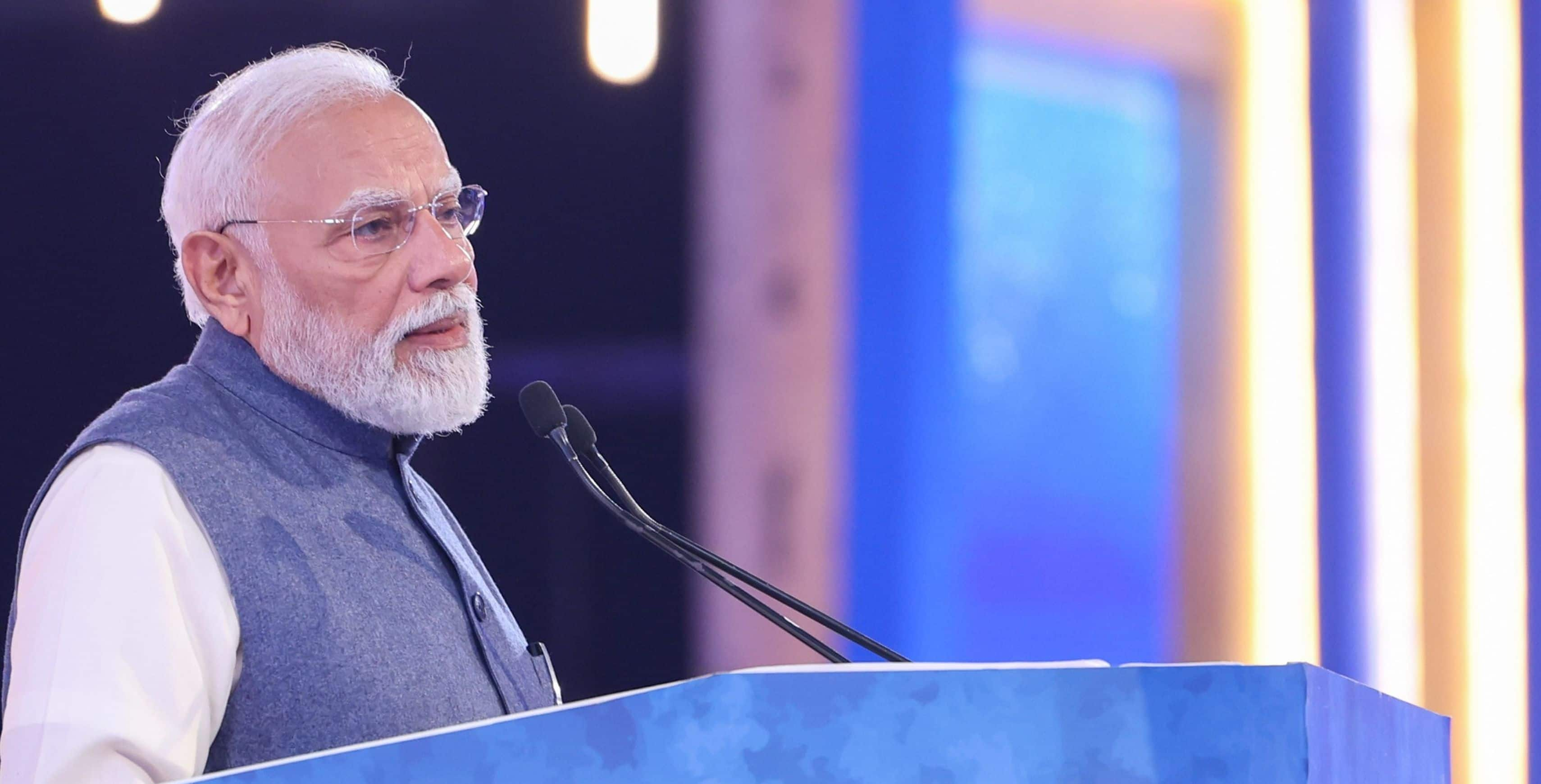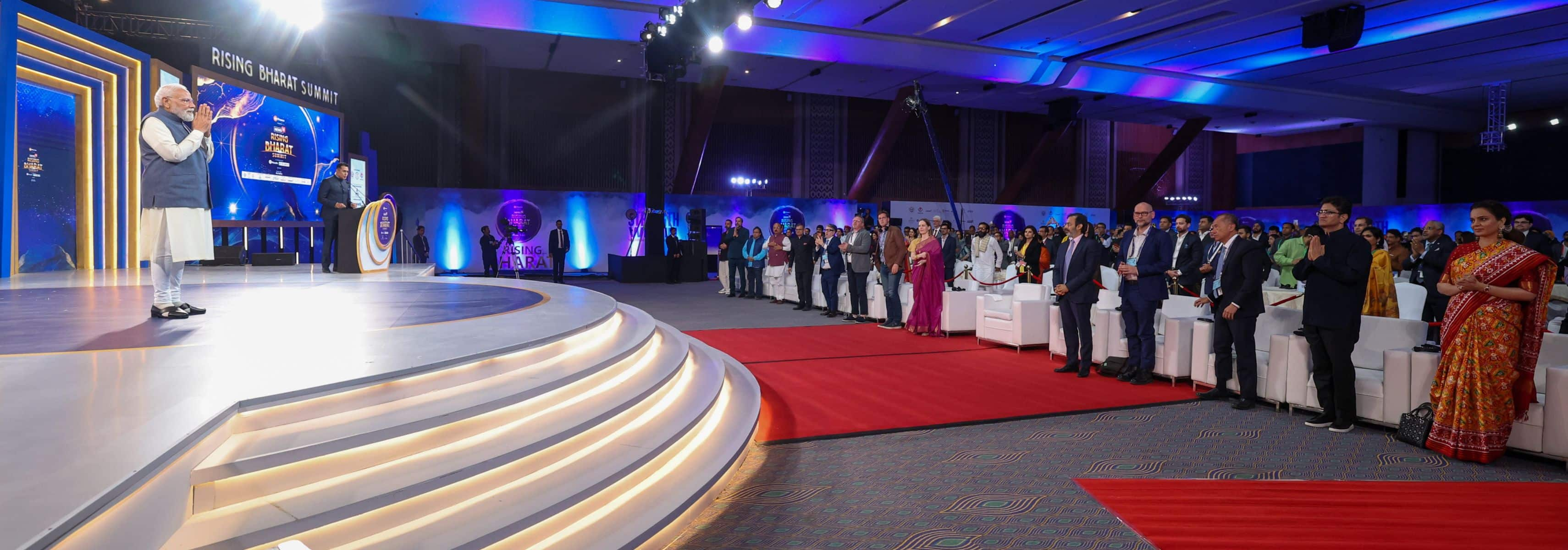Prime Minister Shri Narendra Modi addressed the YUGM Innovation Conclave at Bharat Mandapam in New Delhi today. Addressing the gathering on the occasion, he highlighted the significant gathering of government officials, academia, and science and research professionals, emphasizing the confluence of stakeholders as a "YUGM"—a collaboration aimed at advancing future technologies for a developed India. The Prime Minister expressed confidence that the efforts to enhance India's innovation capacity and its role in deep-tech would gain momentum through this event. He remarked on the inauguration of super hubs at IIT Kanpur and IIT Bombay, focusing on AI, intelligent systems, and biosciences, biotechnology, health, and medicine. He also mentioned the launch of the Wadhwani Innovation Network, which reaffirms the commitment to advancing research in collaboration with the National Research Foundation. The Prime Minister congratulated the Wadhwani Foundation, IITs, and all stakeholders involved in these initiatives. He also extended a special appreciation to Shri Romesh Wadhwani for his dedication and active role in fostering positive changes in the country's education system through collaboration between the private and public sectors.

Quoting the scriptures in Sanskrit meaning true life is lived in service and selflessness, Shri Modi remarked that science and technology should also serve as mediums for service. He expressed his satisfaction witnessing institutions like the Wadhwani Foundation, and the efforts of Shri Romesh Wadhwani and his team, steering science and technology in the right direction in India. He highlighted Mr. Wadhwani’s remarkable journey, marked by struggles, including the aftermath of partition, displacement from his birthplace, battling polio in childhood, and rising above these challenges to build a massive business empire. Shri Modi commended Shri Wadhwani for dedicating his success to India's education and research sectors, calling it an exemplary act. He acknowledged the foundation's contributions to school education, Anganwadi technologies, and Agri-Tech initiatives. He noted his earlier participation in events like the establishment of the Wadhwani Institute of Artificial Intelligence and expressed confidence that the foundation would continue achieving numerous milestones in the future and extended his best wishes to the Wadhwani Foundation for their endeavors.
Underlining that the future of any nation depends on its youth and marking the importance of preparing them for the future, the Prime Minister remarked that the education system plays a crucial role in this preparation and underscored efforts to modernize India's education system to meet 21st-century needs. He highlighted the introduction of the New National Education Policy, designed with global education standards in mind, and noted the significant changes it has brought to the Indian education system. He remarked on the development of the National Curriculum Framework, Learning Teaching Material, and new textbooks for classes one to seven. He highlighted the creation of AI-based and scalable digital education infrastructure platform - ‘One Nation, One Digital Education Infrastructure’ under PM e-Vidya and DIKSHA platforms, enabling the preparation of textbooks in over 30 Indian languages and seven foreign languages. The Prime Minister remarked that the National Credit Framework has made it easier for students to study diverse subjects simultaneously, providing modern education and opening new career paths. He stressed the importance of strengthening India's research ecosystem to achieve national goals, highlighting the doubling of gross expenditure on R&D from ₹60,000 crore in 2013-14 to over ₹1.25 lakh crore, the establishment of state-of-the-art research parks, and the creation of Research and Development Cells in nearly 6,000 higher education institutions. He remarked on the rapid development of an innovation culture in India, citing the increase in patent filings from around 40,000 in 2014 to over 80,000, reflecting the support provided by the intellectual property ecosystem to the youth. The Prime Minister further highlighted the establishment of the ₹50,000 crore National Research Foundation to promote research culture and the One Nation, One Subscription initiative, which has facilitated access to world-class research journals for higher education students. He emphasised on the Prime Minister’s Research Fellowship, which ensures that talented individuals face no obstacles in advancing their careers.

Shri Modi highlighted that the youth today excel not only in Research & Development but have become Ready and Disruptive themselves, emphasizing the transformative contributions of India’s young generation to research across various sectors. He cited milestones like the commissioning of the world’s longest hyperloop test track, a 422-meter hyperloop developed at IIT Madras in collaboration with Indian Railways. He remarked on groundbreaking achievements such as nanotechnology developed by scientists at IISc Bangalore to control light at the nano-scale and the ‘brain on a chip’ technology, capable of storing and processing data across 16,000+ conduction states in a molecular film. He further highlighted the development of India's first indigenous MRI machine just weeks ago. “India's university campuses are emerging as dynamic centres where Yuvashakti drives breakthrough innovations”, said Shri Modi, showcasing India's representation in Higher Education Impact Rankings, with over 90 universities listed among 2,000 institutions globally. He noted the growth in QS world rankings, where India moved from having nine institutions in 2014 to 46 in 2025, alongside the increasing representation of Indian institutions among the world’s top 500 higher education institutes over the past decade. He also remarked on Indian institutions establishing campuses abroad, such as IIT Delhi in Abu Dhabi, IIT Madras in Tanzania, and upcoming IIM Ahmedabad in Dubai. He underscored that leading global universities are also opening campuses in India, promoting academic exchange, research collaboration, and cross-cultural learning opportunities for Indian students.
“The trinity of Talent, Temperament and Technology will transform India's future”, stressed the Prime Minister, highlighting initiatives such as Atal Tinkering Labs, with 10,000 labs already operational, and the announcement of 50,000 more in this year’s budget to provide early exposure to children. He noted the launch of the PM Vidya Lakshmi scheme to provide financial support to students and the establishment of internship cells in over 7,000 institutions to transform students’ learning into real-world experience. He remarked that every effort is being made to develop new skills among the youth, whose combined talent, temperament, and technological strength will lead India to the pinnacle of success.

Underscoring the importance of meeting the goal of a developed India within the next 25 years, the Prime Minister said, “it is crucial that the journey from idea to prototype to product is completed in the shortest time possible”. He stressed that reducing the distance from lab to market ensures faster delivery of research outcomes to the people, motivates researchers, and provides tangible incentives for their work. This accelerates the cycle of research, innovation, and value addition. The Prime Minister called for a robust research ecosystem, urging academic institutions, investors, and industry to support and guide researchers. He highlighted the potential role of industry leaders in mentoring youth, providing funding, and collaboratively developing new solutions. He reaffirmed the government’s commitment to simplifying regulations and fast-tracking approvals to further these efforts.
Emphasising the need to consistently promote AI, quantum computing, advanced analytics, space tech, health tech, and synthetic biology, Shri Modi highlighted India’s leading position in AI development and adoption. He mentioned the launch of the India-AI Mission to build world-class infrastructure, high-quality datasets, and research facilities. He remarked on the increasing number of AI Centres of Excellence being developed with the support of leading institutions, industries, and startups. He reiterated the commitment to the vision of "Make AI in India" and the goal to "Make AI work for India." He further noted the budgetary decision to expand IIT seat capacities and introduce Meditech courses, combining medical and technology education, in collaboration with IITs and AIIMS. The Prime Minister urged the timely completion of these initiatives, with a focus on positioning India among the "best in the world" in future technologies. Concluding his address, the Prime Minister remarked that initiatives like YUGM, a collaboration between the Ministry of Education and Wadhwani Foundation, can revitalize India’s innovation landscape. He expressed gratitude to the Wadhwani Foundation for their continued efforts and highlighted the significant impact of today’s event in furthering these objectives.

Union Ministers Shri Dharmendra Pradhan, Dr. Jitendra Singh, Shri Jayant Chaudhary, Dr. Sukanta Majumdar were present among others at the event.
Background
YUGM (meaning “confluence” in Sanskrit) is a first-of-its-kind strategic conclave convening leaders from government, academia, industry, and the innovation ecosystem. It will contribute to India's innovation journey, driven by a collaborative project of around Rs 1,400 crore with joint investment from the Wadhwani Foundation and Government Institutions.

In line with Prime Minister’s vision of a self-reliant and innovation-led India, various key projects will be initiated during the conclave. They include Superhubs at IIT Kanpur (AI & Intelligent Systems) and IIT Bombay (Biosciences, Biotechnology, Health & Medicine); Wadhwani Innovation Network (WIN) Centers at top research institutions to drive research commercialization; and partnership with Anusandhan National Research Foundation (ANRF) for jointly funding late-stage translation projects and promoting research and innovation.
The conclave will also include High-level Roundtables and Panel Discussions involving government officials, top industry and academic leaders; action-oriented dialogue on enabling fast-track translation of research into impact; a Deep Tech Startup Showcase featuring cutting-edge innovations from across India; and exclusive networking opportunities across sectors to spark collaborations and partnerships.

The Conclave aims to catalyze large-scale private investment in India’s innovation ecosystem; accelerate research-to-commercialization pipelines in frontier tech; strengthen academia-industry-government partnerships; advance national initiatives like ANRF and AICTE Innovation; democratize innovation access across institutions; and foster a national innovation alignment toward Viksit Bharat@2047.
Click here to read full text speech
Modernising the country's education system to meet the needs of the 21st century. pic.twitter.com/zf2ap0ZQMr
— PMO India (@PMOIndia) April 29, 2025
Bringing world-class knowledge within every student's reach. pic.twitter.com/SbG4kC12Is
— PMO India (@PMOIndia) April 29, 2025
India's university campuses are emerging as dynamic centres where Yuvashakti drives breakthrough innovations. pic.twitter.com/Gi4MxYlvep
— PMO India (@PMOIndia) April 29, 2025
The trinity of Talent, Temperament and Technology will transform India's future. pic.twitter.com/wCStA45d90
— PMO India (@PMOIndia) April 29, 2025
It is crucial that the journey from idea to prototype to product is completed in the shortest time possible. pic.twitter.com/Y6iNOkHJts
— PMO India (@PMOIndia) April 29, 2025
Make AI in India.
— PMO India (@PMOIndia) April 29, 2025
Make AI work for India. pic.twitter.com/hfYRoBXj3F







